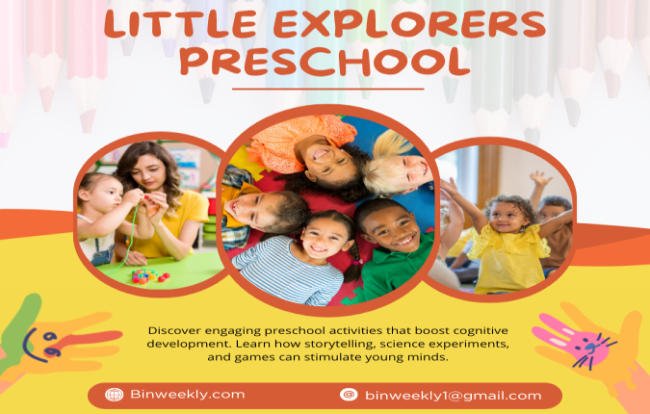Preschool is a critical time for cognitive development. At this stage, children absorb information like sponges, and the activities they engage in can significantly impact their intellectual growth. Understanding this, early childhood educators and parents can introduce a variety of stimulating activities that foster cognitive development.
The Importance of Cognitive Development in Preschoolers
Cognitive development involves the brain’s ability to think, learn, and solve problems. During preschool years, children develop crucial cognitive skills that lay the foundation for their future learning. Activities that challenge their thinking, stimulate curiosity, and encourage problem-solving are essential.
Interactive Storytelling
Storytelling is a powerful tool for cognitive development. When children listen to stories, they improve their language skills and expand their imagination. Interactive storytelling takes this a step further by involving children in the story. Asking questions about the story, encouraging them to predict what happens next, or even letting them create their own endings can enhance their comprehension and critical thinking skills.
Hands-On Science Experiments
Hands-on science activities are excellent for promoting cognitive development. Experiments like mixing colors, growing plants, or exploring magnets can spark curiosity and encourage analytical thinking. In Taylorsville, childcare experts and educators incorporate simple science experiments into the curriculum to make learning fun and engaging. These activities not only teach basic scientific principles but also help children develop observation and reasoning skills.
Educational Games and Puzzles
Games and puzzles are fantastic tools for cognitive development. They require children to think strategically, recognize patterns, and solve problems. Board games, memory games, and simple puzzles can be both entertaining and educational. By incorporating these into daily routines, parents and educators can help children improve their cognitive abilities while having fun.
Creative Arts and Crafts
Art activities such as drawing, painting, and crafting allow children to express themselves creatively while developing fine motor skills and spatial awareness. These activities also encourage problem-solving and planning as children decide what materials to use and how to create their artwork. Encouraging children to describe their creations can further enhance their language and cognitive skills.
Outdoor Exploration
Spending time outdoors offers endless opportunities for cognitive development. Nature walks, scavenger hunts, and gardening activities can stimulate children’s curiosity and observational skills. Outdoor play also promotes physical development, which is closely linked to cognitive growth. Providing children with opportunities to explore and discover their environment is invaluable for their intellectual development.
Conclusion
Incorporating engaging activities into the preschool curriculum is essential for boosting cognitive development. Interactive storytelling, hands-on science experiments, educational games, creative arts, and outdoor exploration are all effective ways to stimulate young minds. By providing a variety of activities that challenge and inspire, early childhood educators and parents can help lay a strong foundation for children’s future learning and success.

